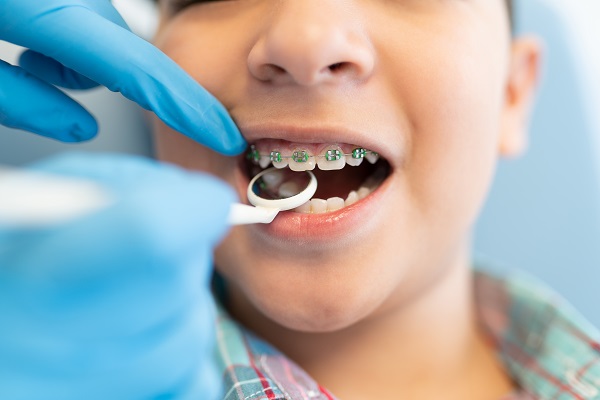When Your Child May See an Orthodontist for Jaw Growth Issues

As a parent, you need to visit the orthodontist to know the necessary precautions to take and ensure that the child's jaw grows healthy and without issues. The soft tissue and muscles of the face play a role in proper jaw development. When the soft tissue or muscle is damaged, it leads to bad habits, such as overactive lip and cheek muscles, mouth breathing, low tongue posture, and incorrect swallowing. When the appropriate precautions are taken, children can avoid these issues.
Factors that impede jaw growth
Nasal breathing, tongue position, and sealed lips with teeth in slight contact are three essential elements that influence a child's facial development. When these elements are overlooked, the child could experience issues with jaw development, tooth growth, and facial structure.
A child's jaw growth is influenced by several habits, such as unhealthy swallowing patterns, wrong tongue position, thumb sucking, genetics, improper oral alignment, bottom jaw hanging open with lips apart. Common jaw growth issues that affect children include long face syndrome, receding jaw or chin, small jaws, sunken checks, a reduction in oxygen uptake, and breathing problems when sleeping
The importance of visiting the orthodontist for treatment
Parents should take their children to an orthodontist who specializes in this type of treatment as soon as possible. Certain conditions are easier to treat early in a child's life than they are later in life. Children's jaws should be examined on a regular basis to ensure that they are growing in the right direction. The dentist will look for teeth that are too crowded or too widely spread. If the teeth are significantly crowded, it implies that the jaw is too narrow to accommodate all their permanent teeth. Bad habits such as thumb sucking, mouth breathing, and posture can all contribute to loosely spread teeth.
The orthodontist treats every patient as a unique person. Each patient will have an initial consultation session at the office to acquire information such as photographs, a digital scan, and a panoramic X-ray. From there, the dentist can figure out the best treatment plan. They may recommend a device to resolve excessive space between the upper and lower front teeth. The goal of this device is to keep the lower jaw in a healthy posture during its development.
The child's jaw growth will be watched as it grows into a balanced location between the jaw and the face if treatment is required. If there are any regions of the jaw that are not growing, they will be stimulated. The physicians will control the growth if it gets excessive. In the second stage of therapy, the child's mouth would be fitted with braces or clear aligners. Their teeth can be guided into the appropriate places by the braces. Only if the child has all their adult teeth will this happen. The child would then require retainers to maintain the teeth’s position.
Early orthodontic intervention is critical
If a child is not treated, they may have malocclusions that worsen with time. In addition, crowded or crooked teeth are difficult to clean, which leads to tooth decay. Additional concerns that may arise include dental wear and tear, resulting in headaches that have a detrimental influence on the child. It is crucial to remember that jaw growth issues can be corrected at any age. Make an appointment with the orthodontist today.
Request an appointment here: https://nettsmiles.com or call Nett Pediatric Dentistry & Orthodontics at (623) 759-7658 for an appointment in our Phoenix office.
Check out what others are saying about our dental services on Yelp: Orthodontist in Phoenix, AZ.
Recent Posts
In pediatric dentistry, dentists assess how certain food types affect oral health and make recommendations accordingly. Common childhood snacks can harm teeth by breaking down enamel and contributing to periodontal diseases, such as sugar-filled yogurt packs, cookies, and citrus fruits.This review takes a closer look at snacks parents can provide for their children that are…
Once teething starts, you should pay close attention to your child's teeth to avoid tooth decay, cavities, and other oral health problems. A dentist specializing in pediatric dentistry might advise against pacifiers and other items that might interfere with the healthy development of their oral tissues. Sucking on a pacifier is common among infants and…
Pediatric dentistry is a vital part of a child's healthcare team. They are responsible for the oral health of babies, children, and adolescents. A pediatric dentist has the education and experience to care for a child's unique dental needs. In addition, they can provide preventive care, diagnosis, and treatment of various dental problems.Parents need to…
Pediatric dentistry works with parents and children to keep gums and teeth healthy. Brushing daily may be an important part of oral care, but it is not enough. Flossing must be a habit in kids as well. If you want to know more about the importance of daily flossing, here are the details straight from…


